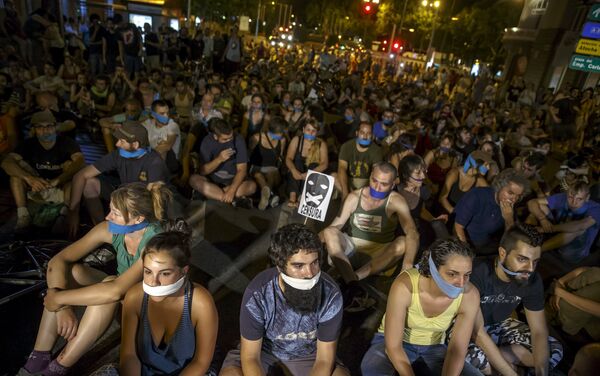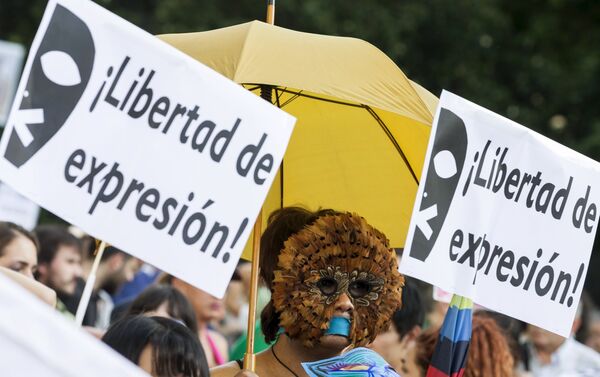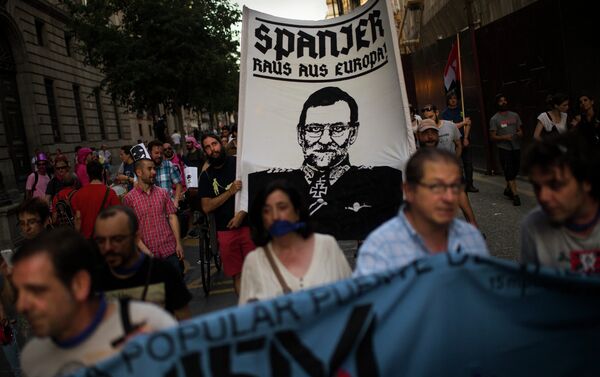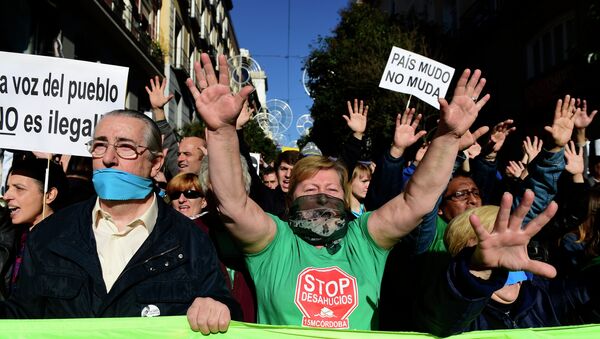The mainstream media outlets use unauthorized rallies or staged protests as a pretext to accuse the Kremlin of repressions, Propagandaschau wrote. The remarks are always superficial and no effort is made to analyze Russian legislation or compare it to the European laws, the media outlet added.



When a European country passes a law which turns any demonstration into a gamble of consequences, ranging from jail to bankruptcy, the German "fairytale media world" holds its tongue, Propagandaschau pointed out. The ones keeping silent include the world's largest public broadcaster ARD and German public-service television broadcaster ZDF.
The anti-protest law introduces large fines of up to 600,000 euros for holding unauthorized or illegal protests, including peaceful gatherings and sit-ins. It also prohibits Spanish citizens from filming or taking photos of police officers, allows harsh punishment for those deemed to be resisting arrest and bans rallies near the parliament or regional legislatures.
Under the new law, those who urge others to join a demonstration or post information relating to a planned protest activity on social media, be that Facebook, Twitter or Instagram, could also be fined, EUobserver pointed out.
— How are things going in Spain?— We can't complain — So all is fine?— No, no, we *can't* complain #gaglaw #LeyMordaza
— David Jacovkis (@dvdjaco) 30 июня 2015
Opponents of the legislation, including opposition parties, lawyers, judges and NGOs, claim the wording of the law is ambiguous, which could result in the country turning into a "police state" if the law is not repealed.
#Spain banned social media activism: Using Twitter to call people to protest will be fined under new law #LeyMordaza pic.twitter.com/WlSx1jydTX
— News2Tor (@News2Tor) 5 июля 2015
Only 7 percent of the Spanish population support the measure, EUobserver wrote, citing a survey conducted in late 2014.
The only way you can take a picture to cops is becoming a hologram, from July 1st at #Spain's streets #GagLaw pic.twitter.com/IGboCjDPuE
— 15MBcn_int (@15MBcn_int) 5 мая 2015
On July 30, civil rights activists and left-wing parties held protests across Spain in a bid to fight the law, which some fear is one of the greatest infringements on the rights of Spaniards.
Holograms projected onto #Spain's parliament to protest new #GagLaw. @DoomsdaysCW @bluebarontrader pic.twitter.com/kN9rzxP7Tw
— MP Garza (@mpgarza2012) 12 апреля 2015
Yet the German mass media remained silent on the matter, Propagandaschau noted, adding that "ARD and ZDF found plenty of time for football, weather forecasts and other nonsense, but did not say a word about the [Spanish] law."


